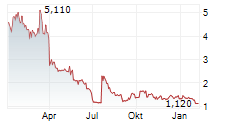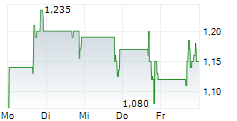This unique cellular activity may help restore energy balance and improve essential cell functions such as protein synthesis and membrane stability in diseases like Parkinson's ALS Alzheimer's and Progeria where mitochondrial failure and oxidative stress drive progression
MIAMI, FL / ACCESS Newswire / July 24, 2025 / Telomir Pharmaceuticals, Inc. (NASDAQ:TELO), or Telomir, a preclinical-stage biotechnology company developing therapies that target the root causes of biological aging and age-related diseases, today announced new preclinical results showing that its lead compound, Telomir-1, restored mitochondrial function without triggering oxidative stress or cell proliferation in human cells derived from a patient with Hutchinson-Gilford Progeria Syndrome (HGPS).
The study was conducted in collaboration with Smart Assays Biotechnologies Ltd., a leading preclinical contract research organization specializing in advanced cell-based models and drug mechanism profiling. Researchers used a Progeria human fibroblast cell line that models the mitochondrial dysfunction, oxidative stress, and premature aging associated with this rare genetic disorder.
"This cell line-specific metabolic response may reflect selective engagement of mitochondrial pathways-an encouraging signal for therapeutic programs targeting neurodegenerative diseases where mitochondrial dysfunction drives progression," said Dr. Raphael Mayer, CEO of Smart Assays. "For example, the compound's mode of action may be relevant to Parkinson's disease, where mitochondrial stress and redox imbalance directly contribute to dopaminergic neuron loss. We've worked with many companies developing mitochondrial-targeted therapies, and Telomir-1 stands out with one of the most distinctive profiles we've seen."
A Targeted Approach to Cellular Energy Restoration
Mitochondria are the "power plants" of the cell, responsible for generating the energy needed for survival, repair, and communication. In many serious diseases-including Progeria, Werner's disease, ALS, Parkinson's, and Alzheimer's-mitochondria lose function, and cells cannot produce the energy required to maintain health.
While restoring mitochondrial energy is a promising strategy, doing so without increasing reactive oxygen species (ROS) or causing genetically unstable cells to divide is critical. In this study, Telomir-1 demonstrated a unique activity profile: restoring energy selectively in diseased cells, without significantly affecting control fibroblasts.
In this Progeria model, Telomir-1:
Significantly increased mitochondrial energy production (WST-1 assay):
Indicating improved energy generation in metabolically compromised cells-a fundamental requirement for cellular repair and function.Did not increase the number of live cells (Calcein staining):
Suggesting Telomir-1 restored energy without triggering cell division, which may offer important safety advantages in fragile or genetically damaged cells.Reduced reactive oxygen species (ROS) under both basal and metal-induced stress conditions: ROS are damaging molecules linked to mitochondrial dysfunction and cellular decline. In this model, reducing ROS is especially important, as oxidative stress contributes to degeneration in genetically unstable cells such as those seen in Progeria and other mitochondrial-driven diseases.
Showed a stronger effect in Progeria cells than in healthy fibroblast controls:
Indicating a potentially selective effect in diseased tissue, with reduced risk of unwanted stimulation in healthy cells.
"In Progeria and other conditions where cells are genetically unstable, restoring function without forcing replication is an important safety consideration," said Dr. Itzchak Angel, CSA at Telomir. "Generally, increasing mitochondrial activity is associated with an increase in ROS production, which can be harmful to the cell.Telomir-1's ability to boost energy production, while reducing ROS and without triggering proliferation sets it apart from many compounds in this space."
Therapeutic Potential Across Mitochondrial-Driven Diseases
The mechanism observed in this study may have broader relevance across diseases where mitochondrial failure plays a central role, including:
Parkinson's disease: Mitochondrial dysfunction contributes to dopaminergic neuron loss and motor decline. Telomir-1 may support neuron survival by improving cellular energy.
ALS (Amyotrophic Lateral Sclerosis): Motor neurons rely on mitochondrial integrity. Restoring energy without overstimulating growth could help stabilize cell function.
Alzheimer's disease: Linked to early mitochondrial decline and oxidative stress, which precede memory loss and cognitive deterioration.
Progeria (HGPS): A pediatric aging disorder driven by oxidative and mitochondrial damage-offering a focused model for evaluating therapeutic impact.
"We continue to see Telomir-1 produce consistent, differentiated results across multiple models," said Erez Aminov, CEO of Telomir. "The ability to restore mitochondrial function without increasing ROS or activating cell replication may represent a fundamentally new approach to treating complex diseases rooted in energy failure."
Targeted Clinical Strategy Underway
Telomir has completed multiple preclinical studies in human cell models and in vivo systems and is finalizing IND-enabling work for Telomir-1. The company continues to evaluate several possible initial clinical indications, guided by data, unmet medical need, and regulatory strategy.
"We're now focused on selecting the right disease target that aligns with our mechanism and allows us to deliver the greatest clinical impact," added Aminov. "We look forward to sharing our next steps as we move toward the clinic."
Cautionary Note Regarding Forward-Looking Statements
This press release, statements of Telomir's management or advisors related thereto, and the statements contained in the news story linked in this release contain "forward-looking statements," which are statements other than historical facts made pursuant to the safe harbor provisions of Section 27A of the Securities Act of 1933, as amended, and Section 21E of the Securities Exchange Act of 1934, as amended. These risks and uncertainties include, but are not limited to, the potential use of the data from our studies, our ability to develop and commercialize Telomir-1 for specific indications, and the safety of Telomir-1.
Any forward-looking statements in this press release are based on Telomir's current expectations, estimates and projections only as of the date of this release. These and other risks concerning Telomir's programs and operations are described in additional detail in its Annual Report on Form 10-K for the fiscal year ended December 31, 2024, which are on file with the SEC and available at www.sec.gov. Telomir explicitly disclaims any obligation to update any forward-looking statements except to the extent required by law.
Contact Information
Helga Moya
info@telomirpharma.com
(786) 396-6723
SOURCE: Telomir Pharmaceuticals, Inc
View the original press release on ACCESS Newswire:
https://www.accessnewswire.com/newsroom/en/healthcare-and-pharmaceutical/telomir-pharmaceuticals-reports-telomir-1s-unique-profile-restores-mi-1052227


